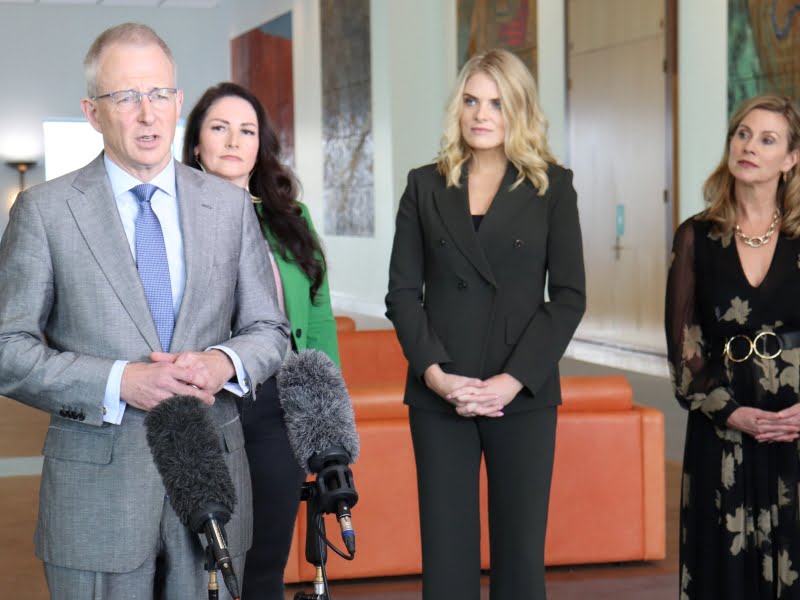The highly controversial “anti-trolling” bill has been introduced to Parliament by the government despite the inquiry into it not having wrapped up yet and amid contradictory claims over its real purpose.
Communications minister Paul Fletcher introduced the Anti-Trolling Bill to the House of Representatives on Thursday morning, despite the inquiry the government has been using to seek feedback on the bill not having provided its advice yet.
The bill creates a “new novel framework to allow Australians to respond to defamatory content posted on social media” but officials have said it has almost nothing to do with online trolling.

The government had requested that stakeholders provide feedback on the draft legislation, unveiled in December last year, through the newly-established House Select Committee on Social Media and Online Safety.
“The Committee will be able to scrutinise the issues addressed by the bill and the measures it proposes. Appropriately, it will be able to do so in the broader context of anonymous online defamatory comments, online harms and effective protections against them,” the Attorney-General’s Department said last year.
The Committee has held nearly 10 public hearings and received more than 70 submissions, most focusing on the legislation in question, but is not due to report on it until 15 February.
The Committee has been told of several concerns surrounding the legislation, and that it is actually solely about defamation rather than online safety or “trolls”.
The bill would enable those who believe they have been defamed online to apply to identify the anonymous posters of this material, and would also serve to reverse the High Court’s Voller defamation ruling.
Under the reforms, a person who administers or maintains a social media page will not be deemed to be a publisher of third party material, making them immune from liability, and social media services will have a defence from being a publisher of defamatory content if they have a complaints scheme in place.
The legislation introduced to the lower house on Thursday appears to be largely the same as the draft bill unveiled in December last year.
Mr Morrison late last year said the bill will be “dealt” with in February, but it will now be debated next week, and not passed by the upper house until the end of March at the earliest.
Prime Minister Scott Morrison has repeatedly claimed that it is about online safety and combatting trolls, saying last year that the new powers are “some of the strongest powers to tackle online trolls in the world” and will “better protect Australians online”.
But Department officials told the Committee inquiry that the bill has nothing to do with online safety or combatting trolls, and is solely about reforming defamation laws.
Despite the title of the bill, the term “troll” or “trolling” is not featured once in its text and neither are defined.
Numerous submissions to the inquiry have raised concern that the powers in the legislation will not help those most vulnerable to online harassment and abuse, and merely open up a new avenue for powerful individuals to bring about defamation actions.
University of Western Australia research associate and WA Australian of the Year 2019 Noelle Martin told the Committee last month that the bill is not about online safety at all.
“It is purely and simply an assisting well-resourced defamation claimants bill. If this committee is serious about addressing online safety…this bill contains fundamental flaws,” Ms Martin said.
“It’s not worthy of its name. It’s utterly inaccessible for those who suffer the most profound harms facilitated by the internet. Without major ratifications to the bill it is a narrowly targeted reform that will only strengthen the hands of already powerful individuals. It is not a bill for the safety of everyday Australians.”
The eSafety Commissioner has also questioned the intent of the bill, saying it could lead to vigilante justice.
The Law Council of Australia told the Committee that the reforms are unlikely to be effective, and may actually lead to increased censorship by the tech platforms and leave victims with no legal recourse.
Do you know more? Contact James Riley via Email.


The ‘free speech party’ introduces lawfare to cancel culture in a heinous attemkpt to shut down any dissent. This is bad legislation from conservative autocrats scared their illicit activities will be exposed. In a country with some of the most restrictive laws on free speech in the world, this law that has nothing to do with trolls and everything to do with cementing power at the top is another small death for democracy. With a whipped and docile mainstream media, social media is often the last refuge for news, commentary and action. It must be opposed.